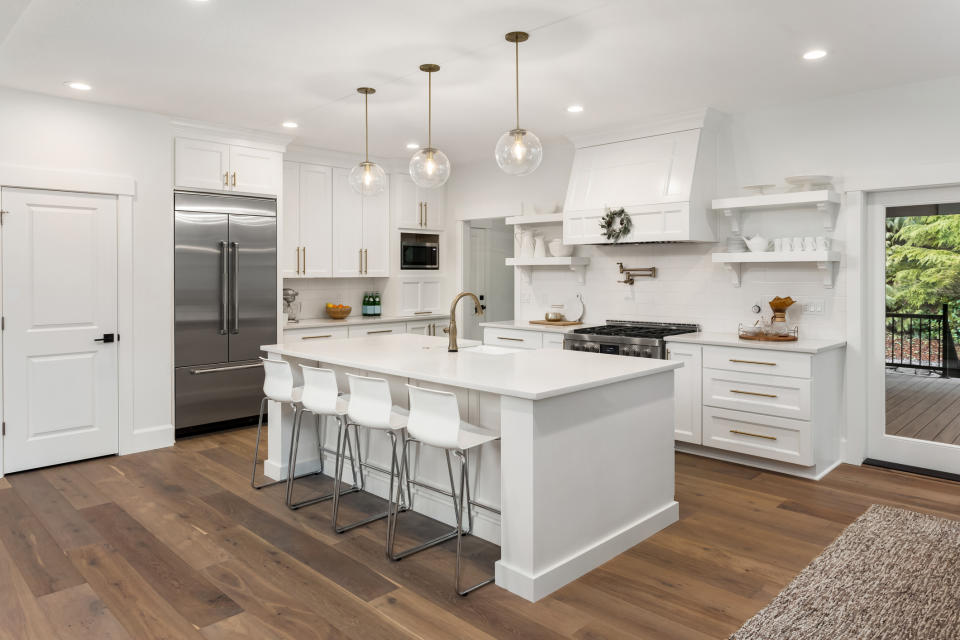Americans Are Planning on Home Improvements, but Most Can't Afford Them Outright
Talk to anyone who owns a home, and you'll probably hear that there are endless repairs and improvements that come with the territory. In fact, 52% of homeowners are planning home projects in the next year or sooner, according to Discover Home Equity Loans. Not surprisingly, kitchen and bathroom remodels top Americans' lists, with 37% planning one within the next 12 months.
Of course, home improvements are a great way to improve your quality of life and add value to your property. There's just one problem: Most Americans don't have the cash on hand to pay for those projects up front. Only 25% have saved enough money to cover the projects they're planning to kick off, which means most homeowners will have no choice but to finance the work they're doing. And that's where things could get dicey.

IMAGE SOURCE: GETTY IMAGES.
Financing home improvements
Having the money on hand to pay for home improvements is the ideal way to go. This way, you avoid paying interest that adds to the cost of your project.
That said, there's a smart way and a less smart way to finance home improvements, and if you're planning to use a credit card, you're unfortunately in the latter category. In the aforementioned survey, 23% of homeowners prefer to use credit cards to pay for home improvements, but doing so could hurt you in several regards. First, if your credit card charges a high interest rate, you'll be stuck paying a lot more for the work you're doing on your home. Second, carrying a credit card balance for too long can bring down your credit score, thereby making it harder and more expensive for you to borrow again when you need to.
A better bet if you don't have the cash? Tap your home equity. Equity refers to the percentage of your home that you actually own, and you can figure out what it is by taking its market value and subtracting your outstanding mortgage balance. If your home is worth $500,000, and you owe $300,000 on your mortgage, you have $200,000 in equity to work with.
Assuming you have equity in your property, there's the option to take out a home equity loan. This is similar to a bank loan, only the collateral at stake is your home itself. The danger of taking out a home equity loan is that if you fall behind on your payments, you risk losing your home. The benefit, however, is that you'll generally qualify pretty easily if the equity is indeed there, and you'll pay far less interest than what you would on most credit cards.
Another route you might take is applying for a home equity line of credit. This isn't a straight-up loan where you receive a lump sum that you must pay back, but rather, a line of credit that you can take money from as you need it. If you're not sure what your upcoming home project will cost, a home equity line of credit may be preferable to a home equity loan. This way, you're less likely to overborrow and rack up interest needlessly. The risks associated with home equity loans apply to home equity lines of credit as well. But again, they're often an affordable means of financing work you need done on your property.
Make sure that project is worth it
Many people make home improvements to make their lives more comfortable, while others do so to increase their property value. If your motivation stems from the latter, do some research to determine how likely you are to recoup your investment before moving forward. The last thing you want to do is sink $60,000 into a remodel, only to learn that you'll probably only get half of that back when you go to sell. On the other hand, if your goal in making improvements is to enhance your property for your personal enjoyment, then you don't need to worry as much about recouping your investment; you just need to worry about financing that project in an affordable fashion.
More From The Motley Fool
The Motley Fool has a disclosure policy.

 Yahoo Finance
Yahoo Finance 